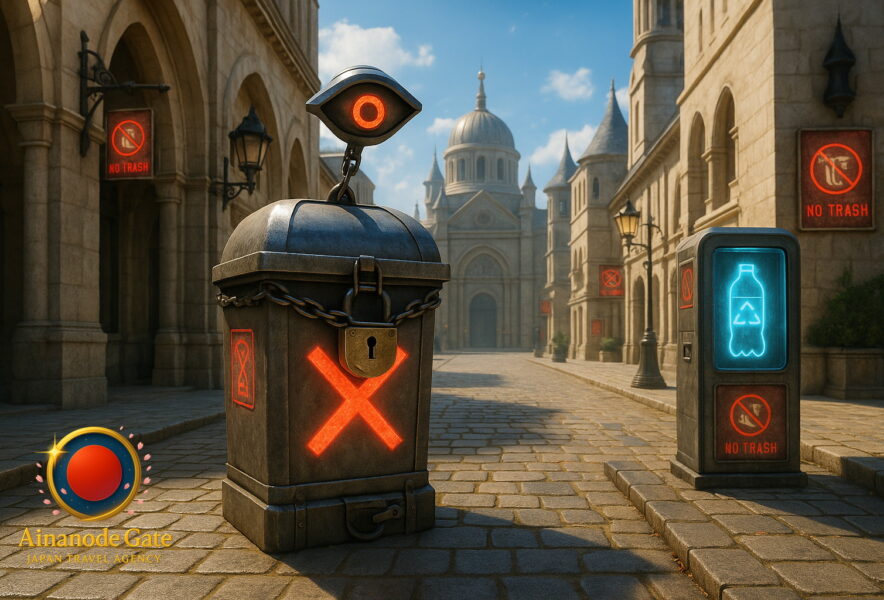

Japan Trash Rules: Why Public Bins Are Rare
In the 1990s, public bins were removed after terrorism concerns, and they never really came back.
Since then, city cleaning crews and community volunteers keep streets tidy, while citizens follow the habit of carrying trash until they can dispose of it at home or in their hotel.

How Tourists Can Dispose of PET Bottles in Japan
Plastic bottles are the only real exception.
Every vending machine in Japan has a recycling box right next to it.
You don’t need to return to the machine you bought from—any vending machine’s bin is fine.
But do not throw in tissues, food wrappers, or other garbage. Those bins are strictly for bottles and cans.

Convenience Store Garbage Rules in Japan
Convenience stores do have bins, but they’re only for items you bought there.
If you eat a bento, you can toss the container into that store’s bin—but don’t dump random trash. That’s frowned upon.
Smart travelers often eat close to the store so they can properly dispose of their packaging right away.

Do’s & Don’ts: Garbage Disposal Tips for Tourists
So what should you actually do as a visitor? Here’s the golden rule:
always be ready to carry your trash.
Keep a small plastic bag or eco-bag in your daypack.
When you finish a snack, tuck the wrapper inside.
When you use a tissue, fold it away until you can dispose of it properly later.
It may feel inconvenient, but this is exactly why Japan’s streets look so clean.


Summary: Japan’s Public Trash Rules Every Visitor Must Know
Japan’s streets are clean not because trash disappears—but because people carry it with them.
For visitors, the safest mindset is: assume you can’t throw anything away outside.
PET bottles and cans → vending machine bins.
Convenience store food → that store’s bin.
Everything else → carry it with you until you return to your hotel.
It may feel unusual at first, but adapting to this habit is part of traveling smart in Japan—and it’s the reason the streets stay impressively clean.

